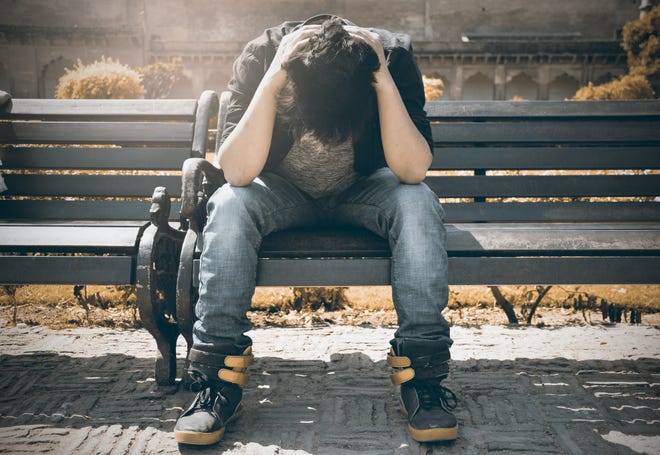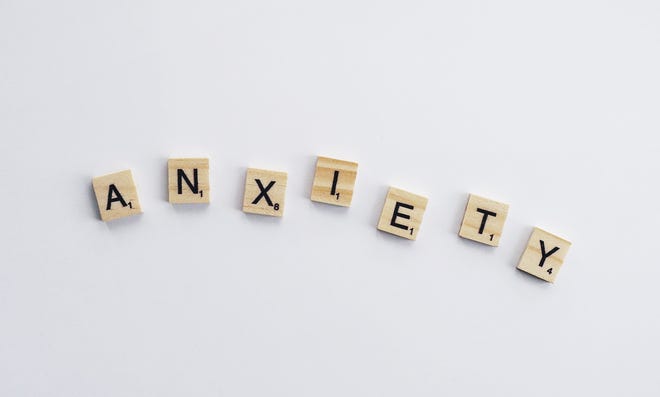Growing up, I learned that depression wasn’t something you talked about. That people who had it were emotionally unstable, weak, lazy or less than.
But that’s the stigma talking. None of that is true, and I now know firsthand, as I have suffered with major depression, anxiety and a personality disorder for two decades.
It took a lot for me to “come clean” about my mental health to friends and family, because it has long been a taboo subject. As hard it was for me, it’s even harder for men to discuss.
Men with depression often go undiagnosed and untreated, because they feel they can’t reach out. They’re supposed to be “tough” or “macho” and not share their feelings. Stereotypes like these are so dangerous, because they prevent men from seeking help and intervention. Not reaching out can lead to depression symptoms worsening and suicidal thoughts.

The suicide rate among American men is about four times higher than among women, according to data from the Centers for Disease Control and Prevention (CDC). That’s very telling.
Even though major depression affects more woman than men, it’s still important for men to know the warning signs of depression and how to get help, especially if they are in crisis. Because of the stigma, men may not realize that depression is a treatable and manageable disease. Not only are mental disorders under reported in men, but the symptoms are different than in women. Men also are more likely to adopt unhealthy coping skills, such as binge drinking.
Women do attempt suicide more often; however, men are more likely to die by suicide, because men use methods that are more likely to cause death, such as guns. Men may act more impulsively on suicidal thoughts and show fewer warning signs, according to the National Institute of Mental Health (NIMH).

Here are some warning signs of suicidal behavior for men (from the NIMH):
- Anger, irritability or aggressiveness
- Feeling anxious, restless or “on edge”
- Loss of interest in work, family or once-pleasurable activities
- Problems with sexual desire and performance
- Feeling sad, empty, flat or hopeless
- Unable to concentrate or remember details
- Feeling very tired, not being able to sleep or sleeping too much
- Overeating or not wanting to eat at all
- Thoughts of suicide or suicide attempts
- Physical aches or pains, headaches, cramps or digestive problems that can’t be explained
- Inability to meet the responsibilities of work or caring for family
- Engaging in high-risk activities
- A need for alcohol or drugs
- Withdrawing from family and friends or becoming isolated
It’s important to note that some men (women, too) do not show any warning signs. That’s why it’s crucial to talk openly — and directly — about mental illness and suicide, so we can normalize it and save lives.
HOW TO GET HELP
To learn more about mental illness and ending the stigma, visit the National Alliance on Mental Illness website, www.nami.org
If you’re struggling with suicidal thoughts, call the National Suicide Prevention Lifeline at 1-800-273-8255, or use the Crisis Text line by texting HOME to 741741.
For more than 20 years, Heather Loeb has experienced major depression, anxiety and a personality disorder, while also battling the stigma of mental health. She is the creator of Unruly Neurons (www.unrulyneurons.com), a blog dedicated to normalizing depression and a member of State Rep. Todd Hunter’s Suicide Prevention Taskforce.
MIND MATTERS
Now more than ever we need to take care of our mental health. Opinion Contributor Heather Loeb discusses why and explores other important mental health topics in this special series.
